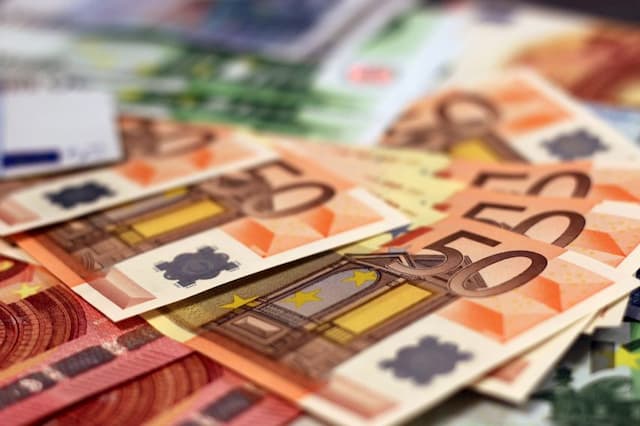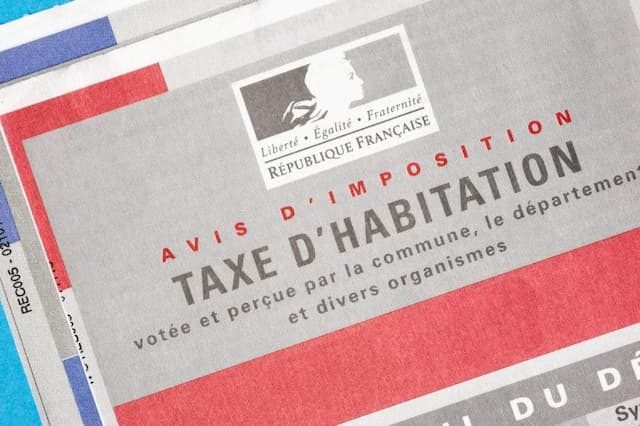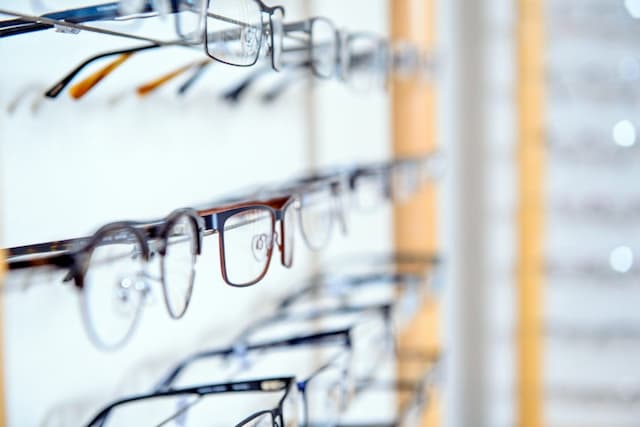Taxes, Glasses, Radar Cars, Tobacco … What Changes on January 1st, 2020

In 2020, new measures may change your purchasing power. Rising tobacco, lower taxes, radar cars … What you need to know to start the year off right.
A new year begins soon. And with, its novelties. Lower income tax and exemption from housing tax for 80% of households, cotton swabs banned for sale, deployment of radar cars in new regions … What changes on January 1, 2020.
The minimum wage increased by 15 euros per month
On the 1st January 2020, the interprofessional minimum wage (SMIC) increases by 1.2% (against 1.5% in the 1st January 2019). The hourly Smic goes from 10.03 to 10.15 euros gross and the monthly Smic from 1204 to 1219 euros net, or 15 euros more per month for the 2.3 million beneficiaries.
On the training side, apprentice training centres (CFA) will no longer be funded by the regions but by professional branches and according to the number of young people under contract, as part of the “Avenir Pro” reform of 2018, which had was the subject of a standoff between employers and the regions, who wished to retain this competence.
Lower income tax
This is one of President Macron’s flagship promises in yellow vests. This reduction in income tax of 5 billion euros will translate into an average annual gain of 350 euros for the 12 million households in the first tranche and 180 euros for the five million in the second tranche.
However, we should not expect another income tax cut in 2021, Prime Minister Edouard Philippe announced in October.
Abolition of the housing tax
In 2020, 80% of households will be completely exempt from housing tax from January 1, after two years of a gradual decrease in monthly payments.
For the remaining 20% of households, the elimination is spread over 3 years and will be completed in 2023.

Tax at source for private employers
Childminders and home helpers will now be subject to tax at source, which is the responsibility of the individual employer to implement, on the monprelevementalasource.urssaf.fr site.
“Macron” bonus renewed but limited
The tax-free bonus for employees (known as “Macron”) is renewed but subject to the conclusion of a profit-sharing agreement in the company.
For small businesses, the game is no longer worth the effort, because the rules have changed. According to a survey by the Union of Self-Employed, 97% of small businesses will not pay the bonus in 2020.
Housing aid reform postponed
It was supposed to be on January 1st, but it will finally be on April 1st, 2020. Housing aid reform is postponed for technical reasons , the government explained on Thursday, December 26th. With this reform, the LPAs will be calculated based on current resources and no longer on those of two years ago.
Driving license at 1 euro, new rule
From 1 st January 2020 and no later than the 1 st March 2020, the device of the “license for 1 euro a day” will only be accessible to driving schools and associations with the label “quality training in schools driving “.
This zero-interest loan is aimed at young people aged 15 to 25 to help them finance their driver’s license. For initial training, you will have to pay a maximum of 1,200 euros , 300 euros for additional training.
Private speed cameras in Brittany, Pays de la Loire and Center-Val-de-Loire
After Normandy, which tested the first radar cars in April 2018 , the system managed by private operators will be extended to the regions of Brittany, Pays de la Loire and Center-Val de Loire from January 2020.
The Grand-Est , Bourgogne-Franche-Comté, Hauts-de-France and Nouvelle-Aquitaine regions should follow at the end of 2020
Railway worker status ended for new SNCF recruits
This is the end of an era: new SNCF recruits will no longer be able to benefit from the status of a railway worker, which will continue to apply to the 131,000 people who currently benefit from it.
This measure of the SNCF reform had been widely criticized by the unions, still currently mobilized against the pension reform project. Another strong measure of the SNCF reform, the opening to competition, which came into force on the 3rd December, 2019. The first private trains should run by mid-2020 or even 2021.

Tobacco price increases
We soon arrive at the pack of cigarettes at 10 euros, will of the Ministry of Solidarity and Health to reduce the consumption of tobacco. From January 1, 2020, the price of a pack of 20 cigarettes will drop to 9.10 or 9.20 euros depending on the brand, as detailed in the order .
Lower gas prices
The regulated tariffs for gas sales applied by Engie, down 0.9% on average in 1 st January 2020, compared to the scale in force on 1 December 2019. The Energy Regulatory Commission details the changing prices :
- – 0.2% for customers who use gas for cooking;
- – 0.5% for those who use gas for cooking and hot water;
- – 1% for homes that heat with gas.
The price of stamps increases by 10%
From January 1, 2020, the price of red and green stamps will increase by around 10% . The red stamp, for priority shipments of less than 20 g, will increase to 1.16 euros (compared to 1.05 in 2019). The green stamp will cost 0.97 euros per unit (compared to 0.88 euros in 2019).

Homoeopathy less reimbursed
Homoeopathic products will no longer be reimbursed by Social Security in 2020 for more than 15% (compared to 30% previously), a prelude to total reimbursement from 2021.
The government ruled last July, agreeing with the opinion of the High Health Authority (HAS) which had concluded that the “insufficient effectiveness” of these pharmaceutical products.

“Angina tests” possible by pharmacists
The “angina tests” can be carried out by pharmacists and not only by doctors.
These tests make it possible to know if the angina is due to a virus or a bacterium, and therefore to avoid the prescription of antibiotics in the first case.
“100% refunded” glasses
As part of the so-called “ 100% health ” reform, certain glasses, dental crowns and hearing aids will be fully reimbursed by Social Security and complementary health insurance.
An implementation on January 1st, 2020, of the reform on the “zero charge burden”, which entered into force in early 2019.

More third-party payment if you refuse a generic
From January 1, 2020, if you do not wish to obtain a generic medication, you will have to get your hands on the wallet. Patients refusing generics without the “non-substitutable” doctor’s justification will not be entitled to third-party payment and will have to advance the full costs. The patient must declare it to his health insurance fund, which will reimburse, minus the amount.
Towards a ban on disposable plastic products
From 2021, a certain number of single-use plastic objects (cutlery, straws, cocktail mixers, touillettes, etc.) will be banned .
But as of January 1, 2020, cotton swabs for household use with plastic stems will already be banned. Waste that ends up most of the time in the sea, rivers and streams and constitutes a major source of pollution, of more than ten tonnes each year .
Some companies are already anticipating this ban on single-use plastics.
The additive E171 prohibited for one year in food
A decree published in the Official Journal of 25 April 2019 provides for the suspension of the placing on the market of food containing the additive E171 (titanium dioxide) for a period of one year from 1 st January 2020.
This additive is used in particular for its coloring properties in many food products (pastries, sweets, ready meals, etc.).
ANSES, which lacks sufficient data to remove the uncertainties about the lack of risk of this additive, had recommended limiting consumer exposure to this product.
[Additif alimentaire #E171] L’@Anses_fr pointe le manque de données et réitère ses recommandations de limitation d’exposition pour les travailleurs, les consommateurs et l’environnement en favorisant des alternatives sûres. #Nanoparticules #DioxydeDeTitane https://t.co/KnrqrqRXMV pic.twitter.com/jbJiHTYjJE
— Anses (@Anses_fr) 15 April 2019
The merger of the courts
This is one of the main measures of the justice reform promulgated in March 2019: the controversial merger of the district and high courts comes into force.
Local courts par excellence, dealing with small daily disputes, the magistrates’ courts disappear and will either be grouped with the TGI within “judicial courts”, or will become separate chambers of these courts. Fighted by the unions of magistrates and by the lawyers, this reorganization aims to create for the litigant a “single entry door to justice”, with the promise that no site will close.
And also
Contributions of creators of micro-enterprises: Alignment of the reliefs of contributions of creators of micro-enterprises (self-entrepreneurs) with those of other entrepreneurs, with a discount of 50% only the first year instead of three declining years (-75% -25%).
Economic and social advice: Companies with more than 11 employees are required to set up economic and social advice (ESC). Since the adoption of the reform of the labour code in 2017, 50,000 CSEs have been implemented, according to the Ministry of Labor.
Social security ceiling: Calculation of the number of invalidity pensions, daily allowances for illness, an accident at work or maternity… From January 1, 2020, the social security ceiling is raised. He is brought to:
- 3,428 euros in monthly value (compared to 3,377 euros in 2019);
- 189 euros in daily value (against 186 euros in 2019).
Mandatory defibrillators: Defibrillators become mandatory for establishments receiving the public (ERP) of category 1 to 3, that is to say those accommodating more than 300 people.
Energy renovation bonus for buildings: low-income households can benefit from a bonus paid by the National Housing Agency (ANAH) as soon as they start energy renovation and energy saving works for their accommodation.
Elimination of 18 taxes: Tax on commercial travellers, geothermal charge, solidarity contribution on wheat and barley: 18 low-yield taxes are abolished in 2020.
Enjoyed this? Get the week’s top France stories
One email every Sunday. Unsubscribe anytime.


